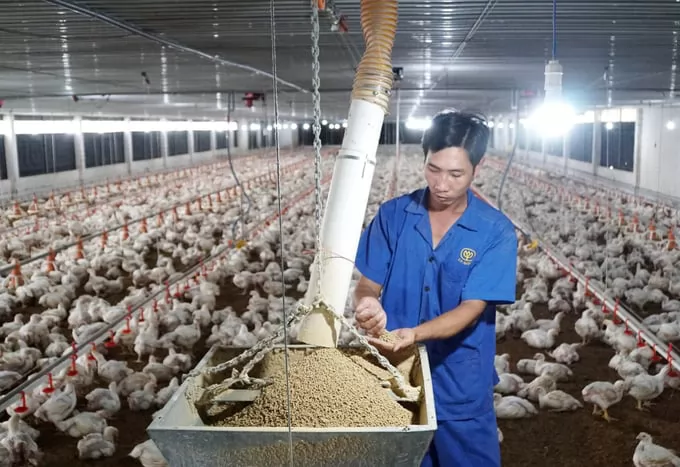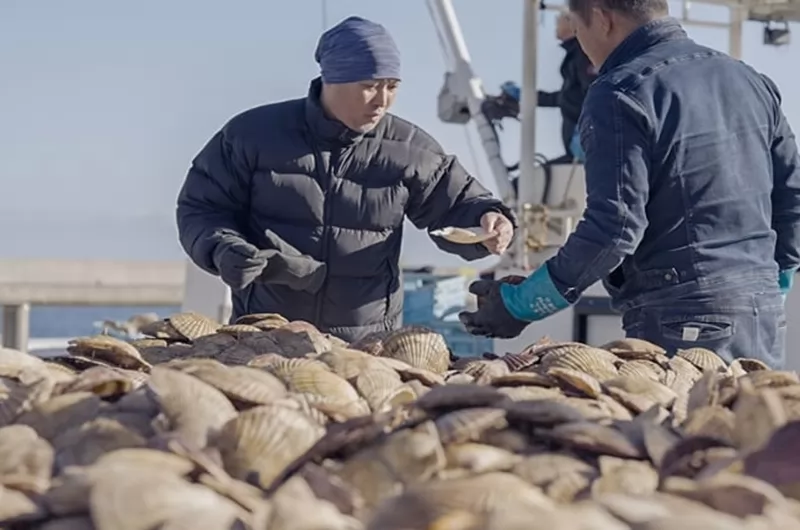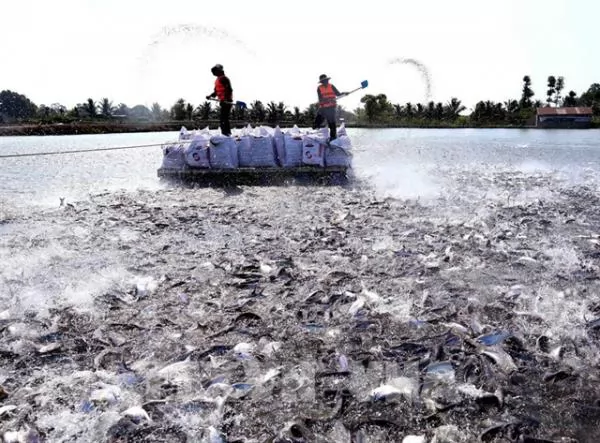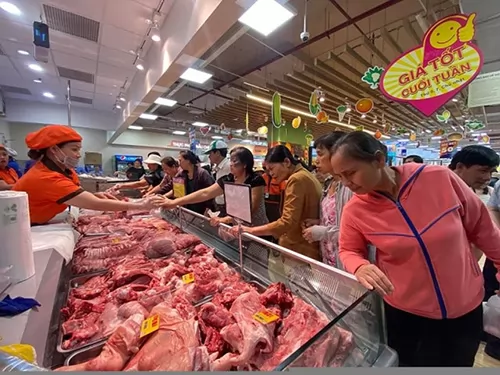Science and technology help Vietnam's livestock industry accelerate

Livestock in our country has grown rapidly in recent years thanks to mechanization and automation. Photo: Le Binh.
(VAN) Mechanization and automation solutions have contributed to helping livestock products dominate the world market.
According to statistics from the Department of Livestock, in 2010 - 2021, meat production of all kinds increased 1.7 times, eggs increased 2.7 times, and fresh milk increased four times, meeting the needs of nearly 100 million people and millions of international tourists yearly.
The impressive statistics above show significant contributions from investment and application of mechanization and automation, especially in the industrial livestock sector. Thanks to this, many livestock facilities not only sharply reduce production costs and improve productivity, output, and quality but also meet disease safety requirements to provide export products.
Mr. Nguyen Tri Cong, Chairman of the Dong Nai Livestock Association, shared that 30 years ago, livestock productivity in Dong Nai was still very low. For example, in pig breeding, the average productivity was only 8-9 pigs/litter, an average of 14-16 pigs/sow/year. For industrial chickens, productivity is only more than half of the world's productivity.
Recently, when visiting countries with advanced livestock farming, such as France, Canada, and the United States, Mr. Cong realized that although the breeding conditions of these countries are still better than those of Vietnam, in terms of productivity, feed consumption rate, and equipment and technology in barns of domestic farmers are nearly equal.
Participating in industrial chicken farming for more than 20 years, Mr. Le Van Quyet, Director of Long Thanh Phat High-tech Agricultural Cooperative, Long Thanh district, Dong Nai province, said that currently, many advanced equipment and technologies are available. Dai has been present at many large-scale industrial chicken farms in Vietnam.
Promoting mechanization and automation in the livestock industry has helped significantly improve productivity and ensure disease safety. Vietnam's livestock industry benefits from that and has grown in scale and output recently.
In particular, thanks to promoting investment, applying mechanization, automation, and other modern equipment and technology in barns, many Vietnamese livestock facilities have produced livestock products that meet livestock production standards, export standards into demanding markets, and the ability to compete with livestock products from other countries.

A chicken farm of Long Thanh Phat. Photo: Son Trang.
One of the typical livestock facilities investing in modern equipment and technology is Long Thanh Phat High-tech Agricultural Cooperative. The Cooperative's industrial chickens are raised in cold barns. All farm equipment and technology are very modern, achieving a high level of automation, from feeding and drinking chickens to cooling, adjusting light, temperature, humidity, etc.
Mr. Le Van Quyet shared that, as one of the export-oriented livestock units, choosing modern equipment for the livestock farm is very important for his Cooperative. Farmers must first ensure the livestock environment for livestock products to meet export standards. Next, the product must be safe, meet the requirements of the importing country, and must have high productivity to reduce costs and create competitiveness.
Investing in advanced and modern equipment and technology at all farms has helped Long Thanh Phat solve the above problems. Thanks to that, Long Thanh Phat's industrial chicken is being exported to Japan and ordered by many companies for consumption in the domestic market.
Dong Nai province is one of the critical industrial-scale livestock areas of the country. Therefore, production components in the livestock sector have many opportunities to access science and technology. In particular, the large scale of livestock farms is favorable for applying mechanization and automation in Dong Nai livestock farming.
The province's livestock industry is relatively large, with two main types of livestock: pigs and chickens. Dong Nai has a total herd of 2.1 million pigs and 23 million chickens, of which farm livestock accounts for 90% of the whole pack.
Generally, in the entire livestock industry of Dong Nai, stages of animal feed processing (crushing, mixing, mincing) and cleaning of barns are primarily mechanized. The rate of mechanization of the barn cooling system reaches 50%. 21% of livestock farms use cold, closed barns; 11.5% of farms apply automation technology to adjust temperature and humidity in cages, provide food, drink water, collect waste, and collect eggs. Nearly 90% of livestock farms have waste treatment systems that ensure compliance with environmental protection commitments.
Mr. Nguyen Van Thang, Deputy Director of the Dong Nai Department of Agriculture and Rural Development, assessed that Dong Nai province's livestock sector has a high level of mechanization, from food production and processing to barn cleaning and livestock management. Many farms have invested in equipment to automate each step and the livestock-raising process.
Authors: Son Trang - Le Binh
Translated by Tuan Huy
Maybe you are interested

Russia says it has delivered 200,000 tons of grain to African countries
The Russian Ministry of Agriculture said Tuesday it had shipped 200,000 tons of grain in humanitarian aid to six African nations, fulfilling the Kremlin's pledge to the continent last July.

Rising tra fish prices a cause for concern
HÀ NỘI — Tra fish prices have hit a new high since 2019, but insiders are concerned that high prices do not bode well for farmers.

Transparency is crucial to help pork market recover
HÀ NỘI — Transparency is key to better protect the interests of businesses and customers in the pork market.





